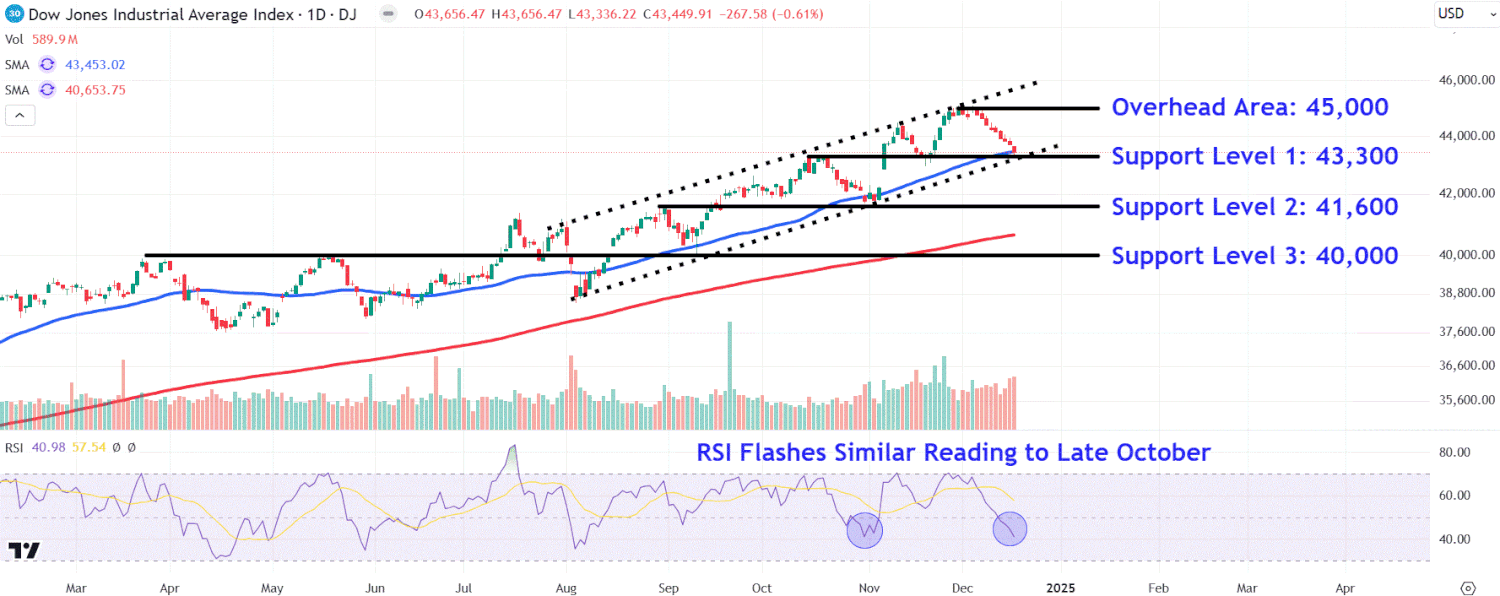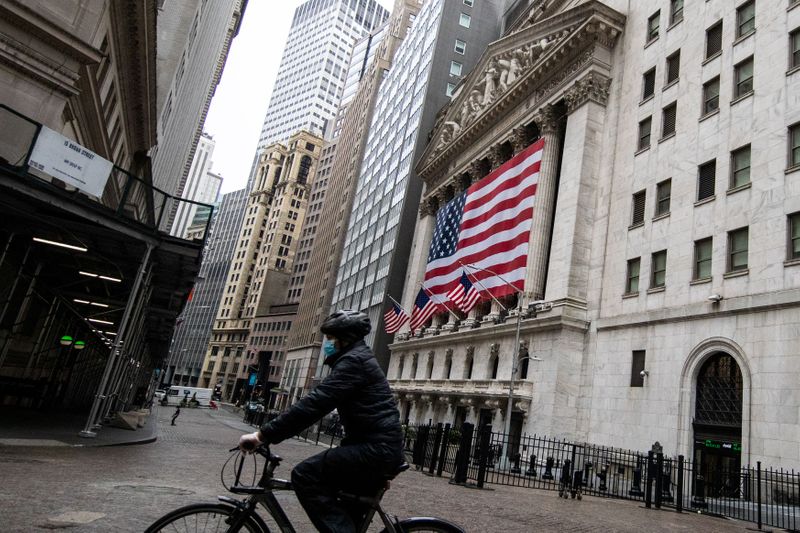Key Takeaways
- The Dow Jones Industrial Average enters trading Wednesday on a nine-day losing streak, the longest stretch of consecutive daily declines for the blue chip index since 1978.
- The index has continued to trend lower after running into resistance near the top trendline of an ascending channel earlier this month, raising the possibility of a potential breakdown.
- Investors should watch major support levels on the Dow’s chart around 43,300, 41,600, and 40,000, while also monitoring a key overhead area near 45,000.
The Dow Jones Industrial Average (DJI) enters trading Wednesday on a nine-day losing streak, the longest stretch of consecutive daily declines for the blue chip index since 1978.
The slump, which equates to nearly 1,600 points, comes after the index closed above the closely watched 45,000 level for the first time on Dec. 4 following an extended post-election rally fueled by expectations of a market-friendly White House and Congress.
Despite the recent losing streak, the index is still up 15% in 2024. However, that return significantly underperforms the S&P 500’s 27% gain and the Nasdaq Composite’s 34% jump over the same period due to the Dow’s smaller exposure to mega cap tech companies.
Below, let’s break down the technicals on the Dow’s chart and point out important chart levels that investors may be watching out for.
Ascending Channel in Focus
The Dow has tracked higher within an orderly ascending channel since late July, with the index tagging the pattern’s upper and lower trendlines several times to establish easily identifiable support and resistance areas.
More recently, the index has trended lower after running into resistance near the channel’s top trendline earlier this month, raising the possibility of a potential breakdown.
While the relative strength index (RSI) confirms weakening momentum, it’s worth noting that the last time the indicator flashed a similar reading in late October, the Dow went on to rally 6% over the next seven trading sessions.
Let’s look at three major levels on the chart where the index could encounter support and also point out a key overhead area to watch during upswings.
Major Support Levels to Watch
The most immediate level to watch sits around 43,300. This area, just below the index’s latest close of 43,450, finds a confluence of support from the ascending channel’s lower trendline, the upward sloping 50-day moving average, the October swing high and the November swing low.
A decisive breakdown below the ascending channel could see the index fall to the 41,600 level. Investors who trade the index could look for buying opportunities near the prominent late August peak and early November trough.
An extended downside move could see the index revisit the psychological 40,000 level, a region where it would likely encounter support near a long-term trendline that links various swing highs and swing lows on the chart between March and September.
Key Overhead Area to Monitor During Upswings
During upswings, investors should closely monitor the key 45,000 level. The index could run into overhead resistance in this area near the upper range of a series of candlesticks positioned around the Dow’s all-time high (ATH).
The comments, opinions, and analyses expressed on Investopedia are for informational purposes only. Read our warranty and liability disclaimer for more info.
As of the date this article was written, the author does not own any of the above securities.



